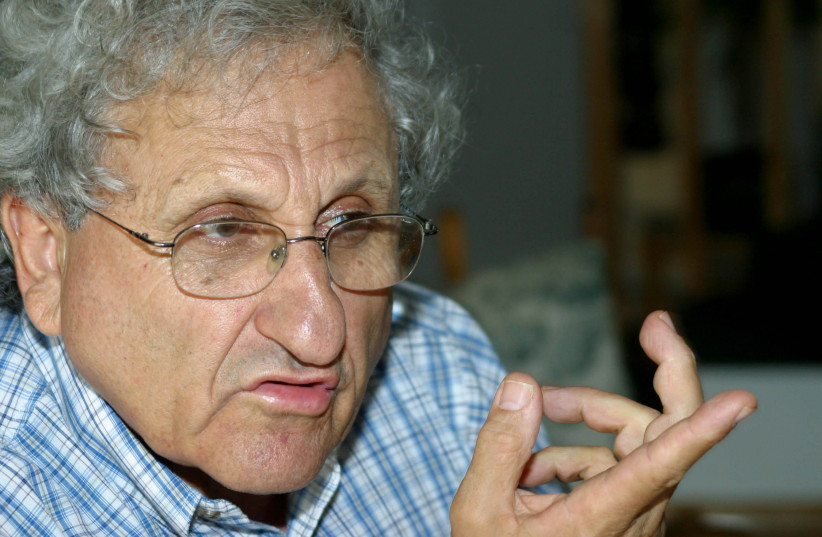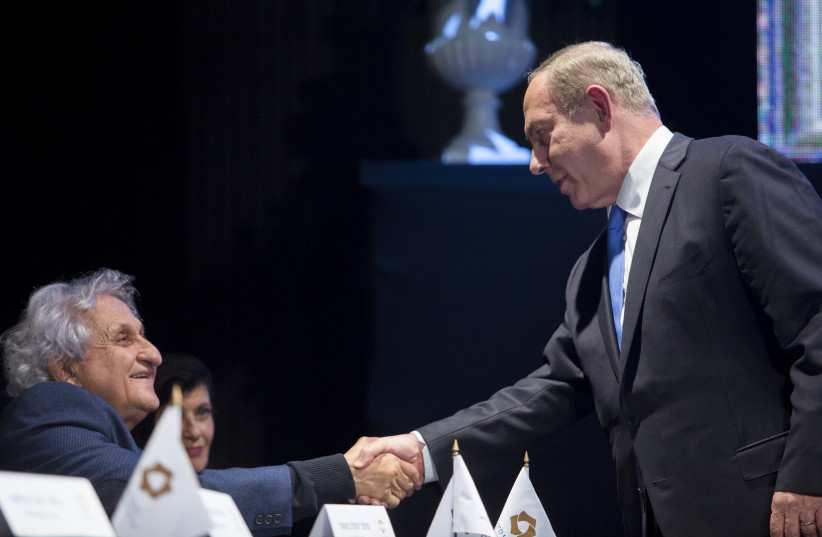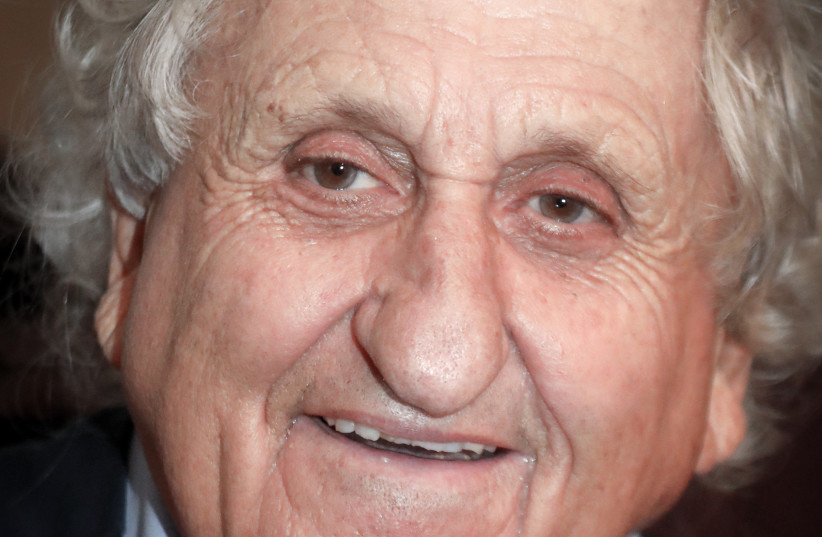The death at Ichilov Hospital in Tel Aviv on Tuesday morning of prolific author, essayist and playwright A.B. Yehoshua was yet another sad stroke marking the end of an era.
Since this past January, a number of Israeli literature, entertainment academic and business icons – most in their eighties and nineties, have passed on, signifying that a new generation with different attitudes and ideas is on the rise.
Yehoshua, 85, had been suffering from cancer for some time and had also grown melancholy following the death of his wife, Rivka, a clinical psychologist and psychoanalyst who passed away five years ago.
Known affectionately as Boolie, Yehoshua was a sixth-generation Jerusalemite on his father’s side and a member of a distinguished Sephardi family. His father, Joseph, was an historian, whose focus was the history of Jerusalem. His mother, Malka, was born in Morocco and arrived in Jerusalem in 1932.
Yehoshua went to school at the Rehavia Gymnasia, where one of the other students a couple of classes below him was a boy called Reuven Rivlin, who later became president of Israel.

Gymnasia graduates included quite a number of distinguished individuals, among them Israel’s fourth president, Ephraim Katzir; IDF general Uzi Narkiss; Supreme Court president Miriam Naor; Entebbe hero and casualty Yoni Netanyahu; best-selling author Amos Oz; general, politician and diplomat Matan Vilnai; ambassador to the US and chairman of the Jewish Agency, the World Zionist Organization and the Jerusalem Foundation Sallai Meridor; Diaspora Affairs Minister Nachman Shai and many others.
Yehoshua was a committed Zionist but for many years a fierce opponent of the Israeli occupation, one of the leaders of the Geneva Initiative and a passionate advocate for a two-state solution to the Israeli-Palestinian conflict.
He changed course slightly in 2016, having reached the conclusion that this was not viable, but that nonetheless the two sides should try to work on some kind of joint endeavor acceptable to both. He stopped short at suggesting what such an endeavor might be.
Following his discharge from the IDF, in which he had served as a paratrooper, Yehoshua studied literature and philosophy at the Hebrew University of Jerusalem, after which he began teaching. He later spent four years teaching in Paris, and starting in 1972, he taught comparative and Hebrew literature at the University of Haifa and was also a writer in residence and visiting professor at universities in England and the United States.
AB Yehoshua's storied literary career
Yehoshua began publishing fiction in the 1950s and wrote numerous novels, short stories, essays, children’s stories and plays, nearly all of which proved to be extremely popular both in Israel and around the world. He was one of the most widely read of Israeli writers, and his works were translated into 28 languages.
His first book of short stories, Mot Hazaken (The Death of the Old Man), was published in 1962. With a sharp eye for detail, and a gift for conveying a lot of meaning in a short sentence, Yehoshua became one of the leading figures in the “new wave” generation of Israeli writers who delved into the thoughts and feelings of the individual.
In 1977, Yehoshua published his first romance novel, The Lover, one of his most notable pieces. He went on to publish The Return from India (1994), Mr. Mani (1989) and The Human Resources Supervisor's Mission (2004).

Several of Yehoshua’s works were adapted for television and cinema. One of them, a short story called “Three Days and a Child,” was the basis of a film directed by Uri Zohar, who died two weeks ago. The film was an enormous success, as was the short story.
Among his books were Five Seas, The Lover, Mr. Mani, The Tunnel, A Journey to the End, A Late Divorce, The Only Daughter, Five Seasons, A Woman in Jerusalem, The Liberated Bride, The Retrospective, Friendly Fire, The Extra, Early in the Summer, The Continuing Silence of a Poet, Open Heart, Shiva and The Third Temple.
An Israel Prize laureate, Yehoshua was the recipient of numerous other awards, including the ACUM Prize, the Prime Minister’s Prize for Hebrew Literature, the Brenner Prize, the Alterman Prize, the Bialik Prize, the National Jewish Book Award, the EMET Prize, the Los Angeles Times Book Prize and various Italian awards.
He received honorary doctorates from Bar-Ilan University, Ben-Gurion University of the Negev and other institutes of higher learning in Israel and abroad.
AB Yehoshua's
Yehoshua had been aware for some time that his illness was terminal and recently announced that he would not undergo further treatment.
Even though it was widely known that he had very little time left, when the end came, it sent shock waves through the literary circles of the nation.

In eulogizing Yehoshua, President Isaac Herzog said how sad and symbolic it was that Yehoshua, one of the giants of Israeli literature, should go to his final resting place during Israel Book Week.
Culture and Sports Minister Chili Tropper said Yehoshua’s books had contributed to the wealth of Israeli literature and culture.
Foreign Minister Yair Lapid, who is himself an author of 11 books, tweeted: “Today we lost a wonderful human being and a great author. Abraham B. Yehoshua was a unique voice between east and west, the intimate and the national.”
In recent interviews and conversations, Yehoshua spoke about his impending demise and said he had lost so many good friends that he was tired of this world and happy to join them.
Yehoshua is survived by his three children and several grandchildren. He will be buried at Kibbutz Ein Carmel, south of Haifa, at 5 p.m. on Wednesday.
